Ti-LIFE TECHNOLOGY
The Ultimate Bridge To fusion
Spineart developed a specific algorithm to enhance the classic additive manufacturing process resulting
in a unique bone-like matrix: Ti-LIFE Technology.
Ti-LIFE Technology is a geometry that would not be possible through classic manufacturing processes. The result is a Titanium porous structure similar to natural trabecular bone.
Additive Manufacturing Technology
Additive manufacturing produces a highly cohesive device which differentiates Ti-LIFE Technology from non-porous surface treatments and coating techniques.
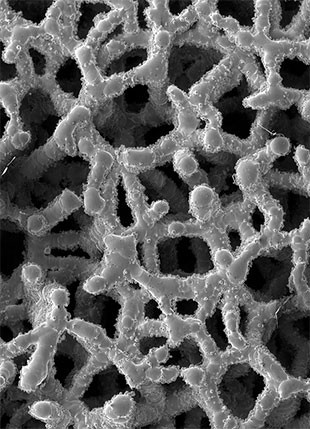
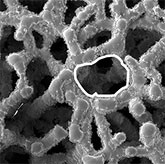
STRUCTURE
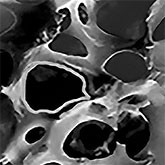
STRUCTURE
Interconnected Pore Structure
Ti-LIFE structure has an average pore diameter of 0.9 mm, with an overall porosity between 70% and 75% that enables cell colonization. In comparison, natural bone features around 70% to 95% porosity with pore diameter ranging from 0.3 mm to 1.5 mm.
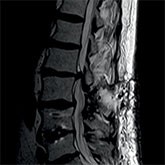
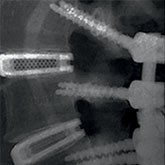
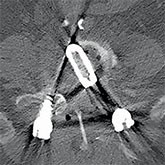
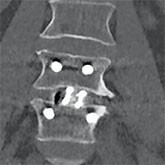
Optimal Visualization
Ti-LIFE Technology allows the design of devices featuring an overall reduced density, which optimize medical imaging and post-operative evaluations.
Modulus of Elasticity
The modulus of Elasticity (EM) is influenced by both material characteristics and implant geometry. Ti-LIFE Technology has an EM close to bone, yet JULIET Ti cages are stronger than JULIET PEEK Cages.
ELASTIC MODULUS [GPA] COMPRESSION
